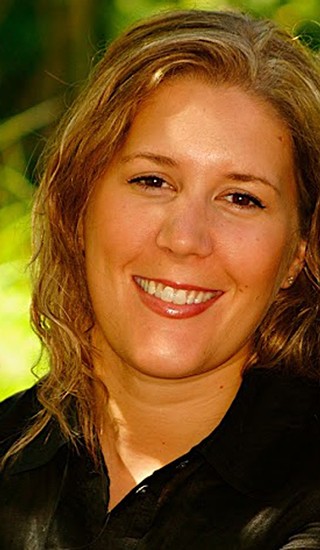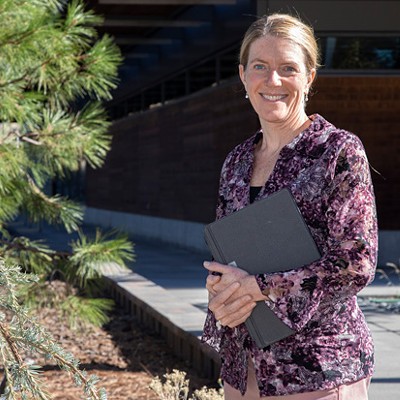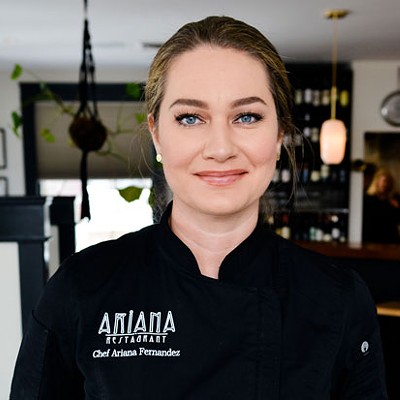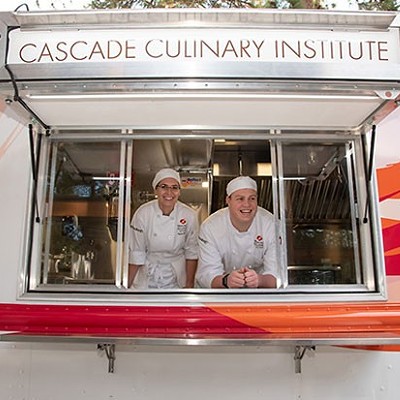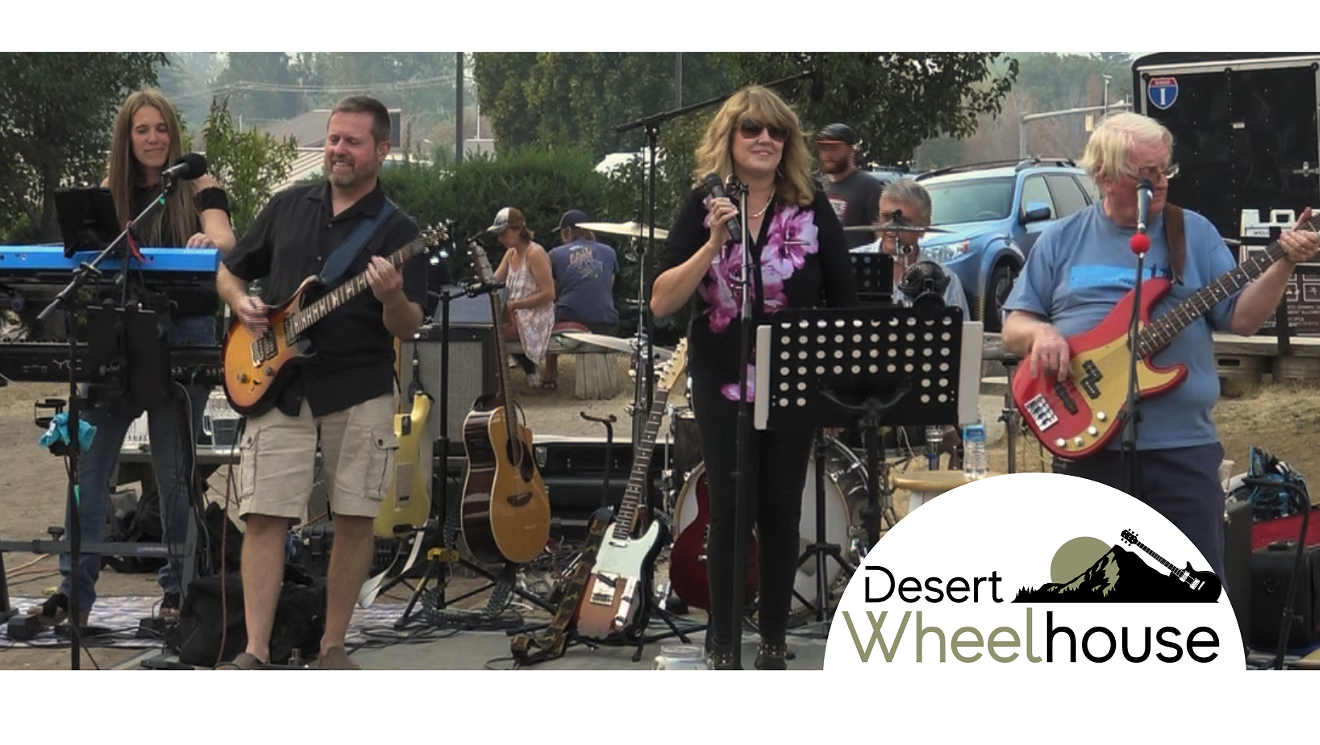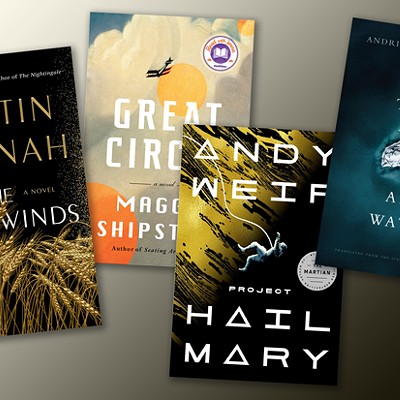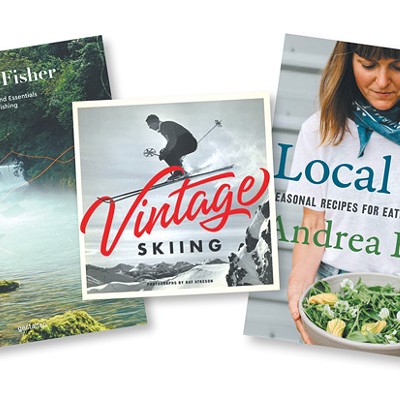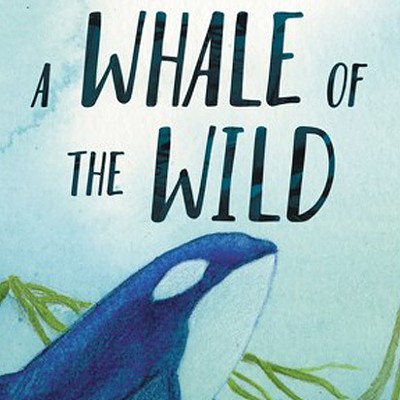Richard Blanco was catapulted into the national spotlight when President Obama selected him as the fifth Inaugural Poet of the United States, following in the footsteps of such great writers as Robert Frost and Maya Angelou. Blanco wrote "One Today," which he read at Obama's Inauguration in January of 2013. Not only was Blanco the youngest poet ever selected, he was also the first Latino, first immigrant, and first gay writer bestowed with the honor. Blanco's poetry is rich with issues of identity, the vitality of the human spirit, and the questions that we ask ourselves on our own journeys: Where Am I From? Where do I Belong? Who Am I in this World? The Source Weekly's Christie Hinrichs recently chatted with Blanco about his upcoming trip to Central Oregon, and the role of poetry in our lives.
Source Weekly: You've spoken of the great potential and hunger for poetry in America today. What do you tell young poets who are eager to answer the call? How do we make poetry popular again?
Richard Blanco: I think poetry is one of the more misunderstood genres of art. In part, because of the way it's taught, which is maybe a bit archaic and abstract. But it's just like any other discipline, art or sport—you have to learn about it. Like any other human endeavor, there's education, trial and error—if you want to try out for the football team you have to first know the rules of the game. You have to practice and get out on the field. It's the same idea with poetry. The real myth that poetry suffers from is that it must be universal. And yet, I tell students – look at every other art form. If you were to go to a film, say, and feel moved, you'll notice that it's not your story up on the screen, but a very specific story in a town you've never been to with people you've never met. It's not your life, and yet you feel the impact of the emotions and situations. It's the same for poetry. When we as readers or viewers or listeners recognize a real human life, the art becomes a mirror that reflects back on us. It's not about exposing yourself, but revealing a passion for whatever it is you're writing about. Doesn't matter what it is. When you're reading a poem, you connect with the voice within that poem.
SW: You inject so much of your identity in your work. I've always considered poetry to be closest to memoir. How have you negotiated between the two genres as a writer?
RB: At first I thought essays were closer to poetry, as they affect ideas. The essay begins with the idea and then supports that idea. Whereas, a poem lets the experience and ideas happen on the page, and often includes a discovery. When I began writing my memoir, I realized that it was far more like poetry. Every genre has its limitations and its strengths. In poetry, you can't get away with too much humor or narrative. I realized that included in my poems were so much backstory and characters that I (and others) wanted to hear more from. That was part of the impulse to write the memoir – which is basically the first half of my first book of poetry, unpacked. There was certainly a learning process involved, to allow myself to keep the action going, and to reserve the eye of the poet for when I wanted to zero in on something very tightly. I learned that while poetry is all about the poetic voice, in memoir the voice fades back to let the story out.
SW: Your poem "Until We Could" is included in the short film that will be screened at your upcoming talk. It's such a powerful piece in celebration of love. How did it come about, and how has it been received?
RB: Freedom to Marry (the organization dedicated to ending federal marriage discrimination) asked me to write the poem in celebration of their 10-year anniversary. It was the first poem I'd ever written that I knew would be a film. So, I couldn't help but think cinematographically—hearing peoples' voices and imagining what the film might look like. We were all on the same page, creatively, on what the poem would be about: love. We wanted the poem to be one that anyone—straight or gay—could connect with. It was conceived as a celebration of love, and not necessarily a political piece. Love is love, which is how they are trying to change the conversation in our country, by emphasizing that everyone is entitled to love and freedom, no matter what their personal story might be. It was a cue that we all worked from. In fact, the poem has been used in several marriage ceremonies. The Cathedral of Hope in Dallas did an enactment of it with 12 couples, and I was very glad to see that happen.
SW: With marriage legal in 36 states now (and banned in 14), do you have any advice for artists, lawmakers and citizens as the effort for nationwide marriage equality moves forward? Is there a role for the poet?
RB: Well, in almost every other nation there's been a clear role for poetry in revolutionary politics—in Cuba, Jose Marti was called the "Apostle" for his poetry in reference in the revolution against Spain. Sometimes, just by speaking up, there's a certain political element or aura around poets. I think that the poet, and perhaps any artist, does have an indirect role to play. That's what art does. It attaches a real human face and life to issues that are discussed in the abstract. So, when you tell a story, when you write a poem, when you take a photograph, these things become real. When we see the real people behind the issues, there's no way we can deny that humanity. Not only that, we connect our own humanity to these abstract political concepts. I think that's exactly what Freedom to Marry did. They attached a face to the issue and made an appeal as human beings, not just as gay people—who deserve to love just like everybody else. Whether you agree with that love or not, they deserve to love. That message is very powerful moving forward and is in many ways what got us to where we are today.
Richard Blanco
Tue., Jan. 27, COCC Bend Campus
Until We Could: Marriage Equality and Cultural Sexuality
Noon-1:30 pm, Wille Hall, Campus Center
Finding My Place at the American Table: An Immigrant's Journey
6:30 pm-8 pm, Wille Hall, Campus Center

